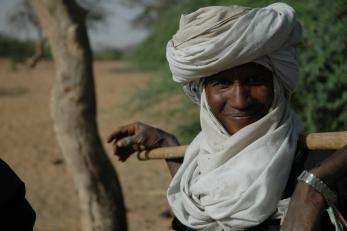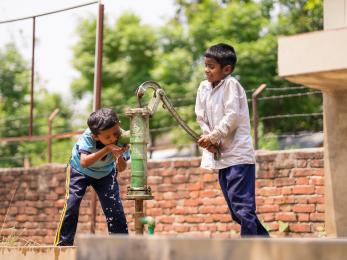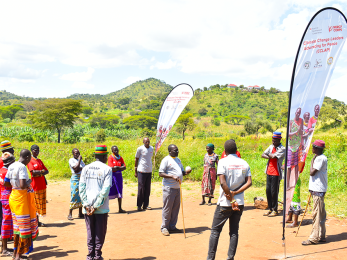“We Hope and We Fight”: Youth, Communities, and Violence in Mali

Since 2012, Mali has been steeped in a violent conflict that has fractured communities, displaced hundreds of thousands, and left thousands of people dead. Despite a peace agreement forged in 2015, security continues to diminish, and hope for a sustainable peace remains fragile. Youth are critical for any peace to take hold, with more than two thirds of Mali’s 18 million people under the age of 24.
To understand the pathways youth take to armed groups as well as the factors that enable others to resist using violence, Mercy Corps and Think Peace interviewed youth members of armed groups, non-violent youth, and community leaders in Northern and Central Mali. This research informs a set of actionable recommendations for policymakers, donors, and civil society organizations for increasing the likelihood of the peace process’s success through investments aimed at preventing youth participation in violence in both the short and long terms.
Download the research brief and full report ▸
Téléchargez le résumé et le rapport complet ▸
Key findings
Community support for armed groups encourages youth to engage in violence out of a sense of duty or quest for respect. A majority of members of armed groups—pro-government, anti-government, and violent extremist—said their communities supported and shared values with these groups, making youth participation in violence neither deviant nor abnormal.
Perceptions of community exclusion perpetrated by the government—based on geography or ethnic identity—fuel participation in anti-government armed groups. Across the North, respondents cited a lack of government services. However, youth in anti-government and violent extremist groups in particular shared deep grievances rooted in their perceptions of the government’s relative neglect and mistreatment of their communities.
Youth cite experience with injustice—including abuses and corruption—as motivators for joining anti-government armed groups. Many youth in armed groups described injustices carried out by government and security actors. Some youth cited direct abuse by the military against their communities, and others described extensive experience with corruption.
Some youth, seeking the long-term stability of a government position, see armed groups as a stepping-stone to joining the military. While few youth cited short-term financial incentives for joining armed groups, some youth, primarily members of pro-government groups, spoke of their hope of joining the Malian military.
Many youth in armed groups and non-violent youth have high, but fragile, expectations for the peace process. Some youth expressed hope that the process would bring about improved security, and others hoped to benefit from the disarmament, demobilization, and reintegration (DDR) provisions. However, slow progress, historical failures, and concerns about exclusion of certain groups and regions make some youth skeptical that the peace process will be effective.

